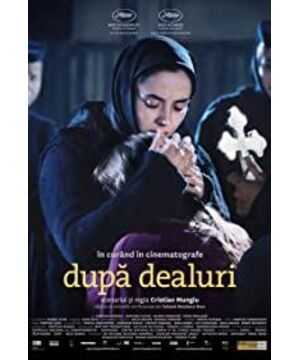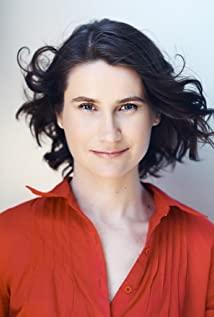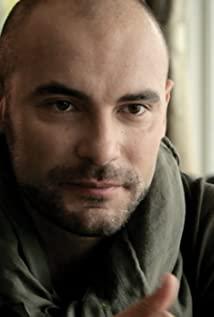Probably as long as you are friends, you have to experience this embarrassing moment more or less: one makes a certain request to the other, unfortunately the other cannot meet it-if it is a money problem, it seems to be easy to handle, and it can be done in all kinds of ways. This level will not allow the SB who wrote "Verify who is a true friend" to succeed. But what if it is about the future, destiny and lifestyle? You can borrow money for your friend, but can you close your company for him/her and accompany him/her to a monk?
In my eyes, Alina is making such a difficult request. It's just that because of the opposite position, she did not ask Vicky to become a monk, but to return to the vulgar. In the eyes of many people, there is natural legitimacy. In fact, it is logically the same: you need to change for me and give up the current life, because I don't think you are living well.
If both parties are in the secular world, then this kind of people, not to mention friends, even parents, would have been kicked by all kinds of liberalism a long time ago. The bad thing is that this time it is the Orthodox Church. Those monasteries located in barren hills and solitary villages have a variety of religious rituals similar to the Middle Ages, which are enough for "normal people" in the 21st century to think that this is an organization similar to MLM, which has used brainwashing for thousands of years to control a group of old and weak. Women and children, let them become a group of monsters incompatible with this world. . . So much.
However, the monastery in the film does not look like a stronghold of the Sun Moon God Sect. The priest was a worker in a former thermal power plant, and his concern for not being able to afford winter coal far exceeded his enthusiasm for preaching. It is inevitable for a man to lead a group of women to invite people to gossip, but all the accusations, including Alina, are only on the imaginary level of "prostitute masturbation". Most of the nuns have suffered a lot of grievances in the outside world and are happy to hide here. In the context of the large number of orphans and difficulties in finding jobs, the "places" admitted to the hospital are even very popular, and the supply exceeds demand. If someone is willing to return to the vulgar and leave, it becomes a great thing for adult beauty. The priest and the dean did not force them to stay.
Is this an escape? Maybe. In fact, as long as there is such a place, it is better than desperate. In fact, the reason why monastic life is so rigid, monotonous, and closed is to warn you that this is not a free shelter. The premise for you to come here is to cut off all worldly pleasures and all the joys of life, give up your own will and freedom, and dedicate yourself to God. If you really want to escape, then this is the price of escape.
Despite the high cost, due to various material and spiritual poverty, countless people still accept this "minimum guarantee" provided by religion-imagine that after Alina went to Germany, she had always been "protected by her." "What's the position of Vicky's?" Alina claimed that Vicky was her only friend, what about Vicky? Isn't Alina's loneliness and helplessness a cause of her involvement in the monastery? At least, Alina has no right to blame her friend for her choice in loneliness.
But she couldn't accept it—perhaps she regretted it, and she didn't have the ability to let her friends live a good life with her. Because she has never had a good life herself. She lived in a foreign country and was hinted of misery (Romanian working women were often tricked into the sex industry in Western European countries such as Germany), as the priest said: it was another person who came back after leaving. Hysteria seems to be a good thing for her, because as a patient, she can justly ask Vicky for care and compromise. However, it may be that God was dissatisfied with her sad strategy, and finally gave her a harsher punishment than loneliness.
At the end of the film, Vickya puts on Alina's sweater, stands back from her dead friend, and sues the black-clad disciplinary men in the foreground on her behalf. But after she left this group, she would inevitably become as lonely as Alina. And that is always the best punishment for the living.
View more about Beyond the Hills reviews











